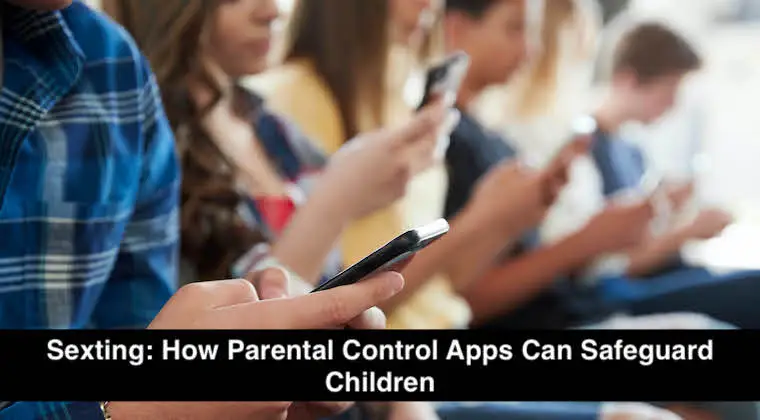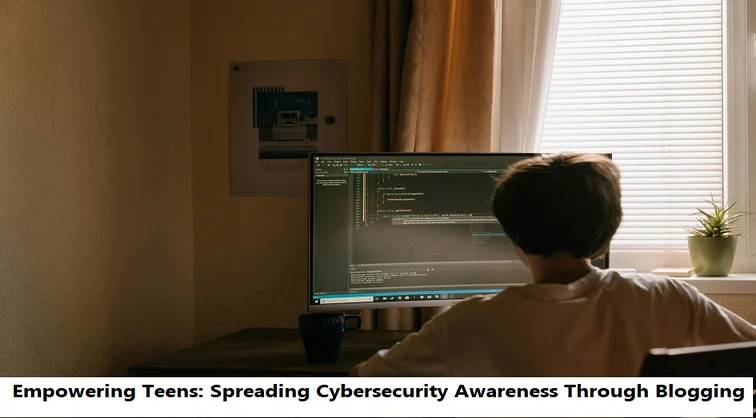+1 845 259 2974 (11 a.m to 7 p.m CST)
Sexting: How Parental Control Apps Can Safeguard Children

In today's digital age, technology has not only improved our connectivity but has also induced several concerns, especially for parents. One such issue that has gained much attention in recent years is sexting.
As our children become increasingly tech-savvy, the responsibility to guide and protect them in the virtual world has become crucial. Ever since technology has become a necessary part of our lives, kids are the first ones to suffer the most. They have been exposed to tons of dangers that can cause serious damage.
Sexting is one of the worst outcomes of using internet and social media too much. It poses potential risks to kids’ life and mental health. Let’s learn what it is and how parental control apps can play a pivotal role in safeguarding the young generation.
What is Sexting
At its core, sexting is the act of sending, receiving, or forwarding sexually explicit messages, photos, or videos, predominantly via smartphones. While adults may engage in it consensually, the significant concern revolves around minors.
The digital footprint left by these activities can have lasting emotional, legal, and societal implications. Kids have no idea that the intimate stuff that they are sharing over social media can haunt them for their whole lives. They even don’t know what to share and what to not.
Sexting is usually the outcome of online relationships that are getting much hype over social media. Kids are very much excited to connect with other people and share stuff that they think that they cannot share in their real life.
Once they connect, sharing starts, they slowly make it a relationship. And, then one of the online partners asks for such stuff to hype up the relationship. Unfortunately, predators are also playing an effective role in this, pretending to be in relationship with the kids and trying to get them to share intimate stuff so that they can bully/blackmail them later.
Potential Risks Involved in Sexting
Sexting is causing serious damage to kids' mental health and lifestyle. There are a lot of things that are causing them to take extreme steps. The consequences of sexting can destroy them. Here are some of the potential risks to look out for:
- Emotional Trauma: The digital realm, unlike the tangible world, holds onto memories. Once an image or a message is transmitted, it's challenging to retrieve or delete it permanently. Such content can inadvertently find its way into the public eye, leading to severe emotional distress, bullying, and sometimes even blackmail.
- Legal Implications: Sharing explicit content involving minors, even if they share it themselves, can lead to criminal prosecution in many jurisdictions. Such a record can drastically affect their future, tarnishing their reputation and leading to potential inclusion on a sex offender registry.
- Lingering Digital Shadows: The internet has a long memory. Explicit content can resurface years later, affecting opportunities in education, employment, and personal relationships.
The Role of Parental Control Apps
Most of the parents realize it way after the worst has happened. They don’t know what is happening and how to tackle the situation. But parental control apps have made things easier for them. Now, they can see what their kids are up to, what they are sharing and what sort of communication they are having. The more you know, the better you can do to protect them.
Here is how parental control apps can help:
- Fostering Open Dialogue: Before even considering technology-based solutions, parents must establish open channels of communication with their children. By understanding the risks and emphasizing the significance of sharing responsibly, children are better equipped to navigate the online world.
- App-Based Monitoring: Parental control apps have gained popularity as they enable parents to oversee their child's online activity. From social media interactions to text messages, these apps can send alerts when they detect questionable content.
- Camera Access Restrictions: Some innovative apps allow parents to either monitor or restrict the usage of a device's camera, ensuring children think twice before clicking compromising photos.
- Limiting Sharing Capabilities: By controlling who can receive photos or messages and on which platforms, parents can exercise a degree of control over their child's interactions.
- Regulating Screen Time: Instituting time-based controls, such as barring smartphone usage after bedtime, can significantly curtail unsupervised and impulsive online activities.
- Regular Device Audits: Periodically checking the apps installed, viewing photos, and skimming through messages can give parents insight into their child's digital life.
- Educating on Privacy Protocols: Making children aware of privacy settings across various platforms ensures they understand the importance of maintaining a safe online environment.
- Promoting Safe Spaces: Encouraging children to participate in monitored or moderated online communities can provide them with safer communication channels.
- Real-time Monitoring: Advanced parental control apps can send instant notifications upon detecting explicit content or suspicious online activity.
- Geo-Tracking: While tracking a child's location might seem invasive, it provides an added layer of safety, ensuring they are not in potentially harmful situations.
Maintain Balance
While parental control apps offer a ray of hope in an otherwise daunting digital landscape, they are not a standalone solution. Solely relying on them could offer parents a misleading sense of security. Moreover, invasive monitoring can lead to children feeling their privacy is being violated, which can strain parent-child relationships.
It's crucial to strike a balance between technological solutions and trust-based communication. By educating our children about the digital realm's intricacies and leveraging technology judiciously, we can hope to create a safer environment for them to grow, learn, and interact.
In conclusion, as technology continues to evolve, so do the challenges it presents. Sexting, a byproduct of our hyper-connected world, is a pressing concern for parents worldwide. With the right blend of open dialogue and the judicious use of parental control apps, we can equip our children to navigate this digital age with responsibility and awareness.


















